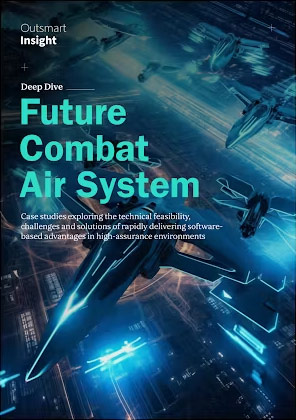Tempest will be part of the UK’s future combat air system (FCAS), and is designed to be a supersonic stealth fighter equipped with pioneering technologies, including state-of-the-art integrated sensing and protection capabilities. These capabilities will be delivered, in part, by millions of lines of code on the aircraft, with many more lines of code also present in ground-based systems. This means the software on Tempest needs to be more robust and resilient than that on its potential adversaries.
 The collaboration provided valuable insights in to software requirements, design, delivery, operation, speed of upgrades and maintenance for both the fighter jet and the training systems pilots and maintainers will use to operate and support the aircraft.
The collaboration provided valuable insights in to software requirements, design, delivery, operation, speed of upgrades and maintenance for both the fighter jet and the training systems pilots and maintainers will use to operate and support the aircraft.
Outsmart Insight, a deep tech intelligence company, and Oxford Creativity, a group delivering a systematic approach to innovation and creative problem solving, conducted targeted research with scientists, engineers and academia. The research addressed the most challenging problems facing software development over the expected multi-decade life of the programme: flexible ways of managing computing resources; the role of trusted artificial intelligence; software re-use; and increasing software dependability.

